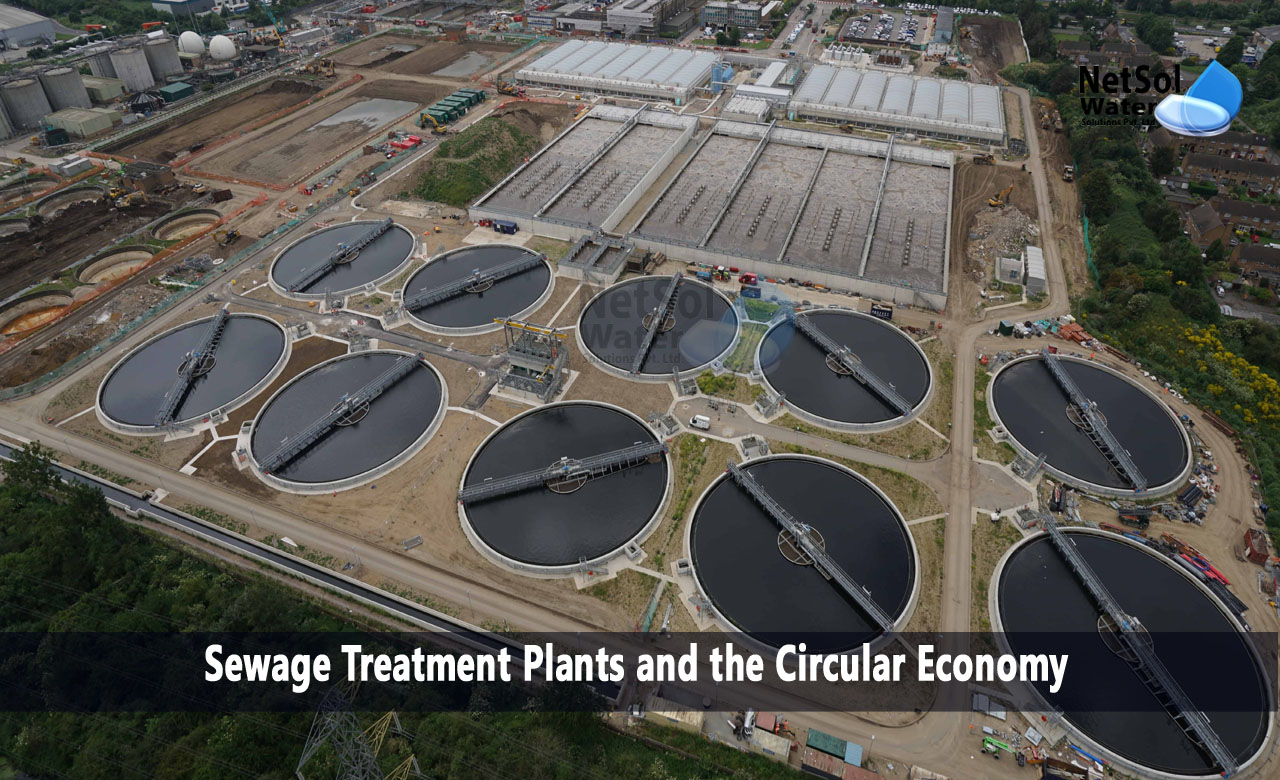Connection between sewage treatment plants and the circular economy
Sewage treatment plants play a crucial role in managing and treating wastewater to protect human health and the environment. However, the traditional approach to wastewater treatment often overlooks the potential of utilizing the valuable resources present in sewage. In recent years, the concept of the circular economy has gained traction, emphasizing the need to close the resource loop and maximize resource recovery from various waste streams.
Now we will explore the connection between sewage treatment plants and the circular economy, highlighting the benefits and potential strategies for closing the resource loop.
Understanding the Circular Economy:
The circular economy is an economic model that aims to maximize the value and utilization of resources by keeping them in circulation for as long as possible. It contrasts with the linear economy, which follows a "take-make-dispose" approach. The circular economy seeks to minimize waste generation, promote recycling, and create a sustainable system that maximizes resource recovery.
Key Points:
Some of the key features that are pros of STP for circular economy are as follows:
1. Resource Recovery in Sewage Treatment Plants
Sewage treatment plants are traditionally focused on removing pollutants and contaminants from wastewater to protect public health and the environment. However, sewage also contains valuable resources such as water, energy, nutrients, and organic matter. By adopting a circular economy approach, sewage treatment plants can play a pivotal role in recovering and reusing these resources.
2. Water Reuse and Conservation
One significant aspect of closing the resource loop in sewage treatment plants is water reuse. Treated wastewater, also known as reclaimed water, can be used for various non-potable purposes such as irrigation, industrial processes, and toilet flushing. Implementing robust treatment processes, including advanced filtration and disinfection, enables the safe reuse of water, reducing the strain on freshwater resources and promoting water conservation.
3. Energy Generation from Sewage
Sewage contains organic matter that can be harnessed as a renewable energy source. Anaerobic digestion, a common process in modern sewage treatment plants, breaks down organic matter in the absence of oxygen, producing biogas. Biogas, mainly composed of methane, can be used to generate electricity and heat, reducing reliance on fossil fuels and decreasing greenhouse gas emissions.
4. Nutrient Recovery for Agriculture
Sewage is rich in nutrients, particularly nitrogen and phosphorus, which are essential for plant growth. Rather than allowing these nutrients to contaminate water bodies and contribute to eutrophication, sewage treatment plants can implement nutrient recovery technologies. Processes such as struvite precipitation and biological nutrient removal can extract valuable nutrients from sewage, transforming them into fertilizers that can be used in agriculture, thus closing the nutrient loop.
5. Valorization of Sewage Sludge
Sewage sludge, a byproduct of wastewater treatment, contains organic matter and nutrients. Instead of disposing of it in landfills or incinerating it, which can have negative environmental impacts, sewage treatment plants can explore innovative approaches for sludge valorization. Sludge can be converted into biogas through anaerobic digestion, used as a soil amendment, or processed into biochar, a carbon-rich material with applications in agriculture and environmental remediation.
Summary:
Sewage treatment plants have the potential to become key players in the circular economy by closing the resource loop and maximizing resource recovery from wastewater. By embracing water reuse, energy generation from sewage, nutrient recovery, and sludge valorization, these plants can contribute to sustainability, resource conservation, and environmental protection.
As we move towards a more sustainable future, it is essential to recognize and harness the value of sewage as a resource rather than merely considering it as waste. By adopting circular economy principles, we can transform sewage treatment plants into resource-recovery hubs, promoting a more sustainable and resilient society.
Leading manufacturer of sewage treatment plants in India.
Netsol Water is Greater Noida-based leading water & wastewater treatment plant manufacturer. We are industry's most demanding company based on client review and work quality. We are known as best commercial RO plant manufacturers, industrial RO plant manufacturer, sewage treatment plant manufacturer, Water Softener Plant Manufacturers and effluent treatment plant manufacturers. Apart from this 24x7 customer support is our USP. Call on +91-9650608473, or write us at enquiry@netsolwater.com for any support, inquiry or product-purchase related query.



